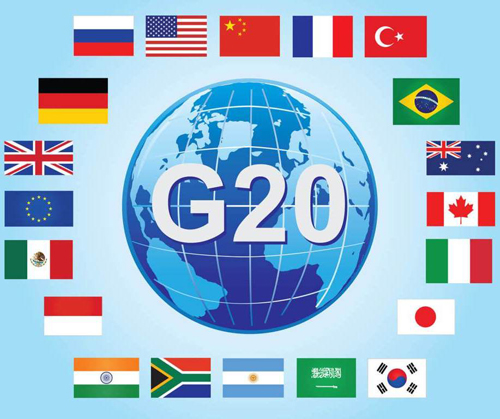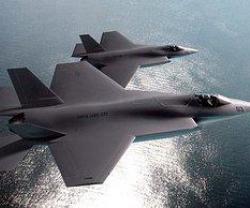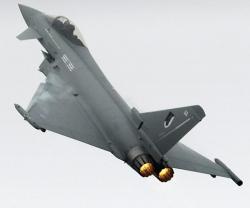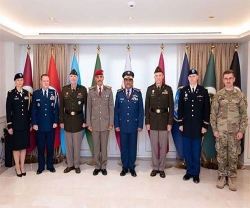Saudi Minister of State Dr. Ibrahim bin Abdulaziz Al-Assaf announced that the Kingdom will host the G20 Leaders’ Summit in 2020.
The announcement was made in a press statement by Dr. Assaf who headed, on behalf of the Custodian of the Two Holy Mosques, the Kingdom’s delegation to the G20 summit that concluded in Hamburg on July 8th, Saudi Press Agency (SPA) reported.
Saud Arabia is the only Arab country and member of the Organization of the Petroleum Exporting Countries (OPEC) in the G-20, so “this is a great honor not just for Saudi Arabia but for the entire Arab world,” reported Arab News.
“This is a true reflection of the rising stature of Saudi Arabia on the world stage. I applaud the heads of state behind this significant decision,” Germany’s Ambassador to the Kingdom, Dieter W. Haller was quoted as saying in the report.
"As we’ve seen with the decisions reached at the Hamburg summit, Saudi Arabia is a very important element of global governance,” he stated.
Under the terms of the revolving presidency, G-20 hosts can set the summit agenda. Germany this year used the opportunity to focus on development partnerships with Africa. Japan will host the G20 summit 2019.
It is not just hosting the summit that is significant, but also the G-20 presidency, said Haller, adding: “It runs for a whole year and culminates in the final summit. Saudi Arabia will be in charge of setting the agenda and organizing the summit of this very important forum.”
The G-20 members include the G-7 nations: Canada, France, Germany, Italy, Japan, the UK and the United States. This group of countries also meets on their own.
There are eleven emerging market and smaller industrialized countries. They are Argentina, Australia, Brazil, China, India, Indonesia, Mexico, Russia, Saudi Arabia, South Africa, South Korea and Turkey. The EU is also a member of the G-20.
The G-20’s members represent two-thirds of the world’s people and 85% of its economy. Since 2007, the media has covered each G-20 summit. That recognizes the members’ role as significant drivers of the world economy.
The growth of Brazil, Russia, India and China (the BRIC countries) has driven the growth of the global economy. The G-7 countries grow slower. Therefore, the BRIC countries are critical for ensuring continued global economic prosperity.
In the past, the leaders of the G-7 could meet and decide on global economic issues without much interference from the BRIC countries. But these countries have become more important in providing the needs of the G-7 countries. For example, Russia provides most of the natural gas to Europe. China provides much of the manufacturing for the United States. India provides high-tech services.
The G-20’s primary mandate is to prevent future international financial crises. It seeks to shape the global economic agenda.
This year’s G-20 Summit Meeting took place on 7-8 July in Hamburg, Germany. The meeting focused on climate change and global trade but made little progress. U.S. President Donald Trump opposed the views of the other 19 countries.
Trump had pulled out of the Paris Climate Agreement. The other G-20 members will hold a follow-up climate summit in December to move forward. Trump also threatened to impose trade restrictions on steel. That could start a trade war. He said there is a supply glut. The G-20 agreed to share information about steel production.
The G-20 agreed to eliminate safe havens for terrorism financing. It will ask the private sector to help. It also addressed conflicts in North Korea, Syria and Ukraine.
Some 4,000 delegates and 3,000 members of the media attended the 2017 meeting.






















